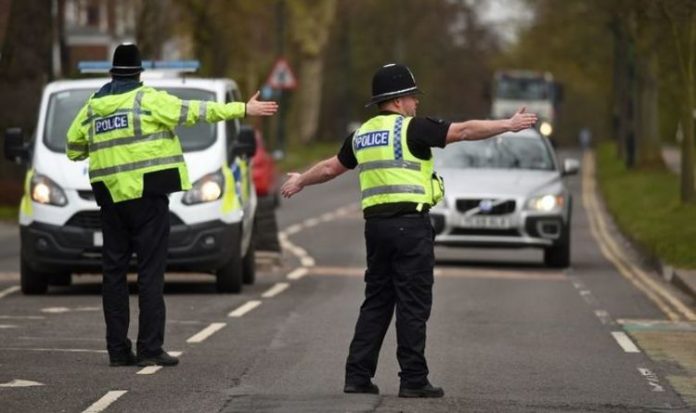The powers have been granted to South Wales Police and they will carry out random checks on vehicles travelling in Cardiff to ensure they are not breaking COVID-19 rules. Currently travel to and from England is banned and people have been advised against unnecessary travel within Wales itself.
South Wales Police said it would increase the numbers of officers on duty to encourage people to adhere to the rules.
The powers will be in place from 9am on Friday until 5pm on Sunday.
Police hope the measures will discourage people from travelling to Cardiff unnecessarily.
People found breaking the regulations could be fined and told to leave the city, the force said.
Police fear shoppers could head to the city en masse for Black Friday deals.
They also suspect people from other parts of the UK, which are currently in a national lockdown, could travel to the capital to enjoy the open shops, restaurants and pubs.
Current English lockdown rules ban people for travelling outside the country for non-essential reasons.
The rules will be lifted from December 2.
JUST IN: Lockdown freedom hopes as tiers CAN be changed before Christmas
“We are anticipating another busy weekend in our city centre, and while we will continue to adopt the policing style we have throughout the pandemic – working with the public to encourage voluntary compliance – we are committed to enforcing where blatant and flagrant breaches occur.”
Wales is not currently under national lockdown rules, with its “firebreak” lockdown having ended on November 9.
Pubs, restaurants, gyms and non-essential retailers all reopened after this date.
After the firebreak ended, the Welsh Government asked the public to limit the number of times you leave your home, and the distance you travel.
Under the coronavirus fixed penalty notices system, people can be fined £60 for a first offence, which increases to £120 for a second offence and continues to double for repeated offences, up to a maximum of £1,920.
If prosecuted, however, a court can impose an unlimited fine.







